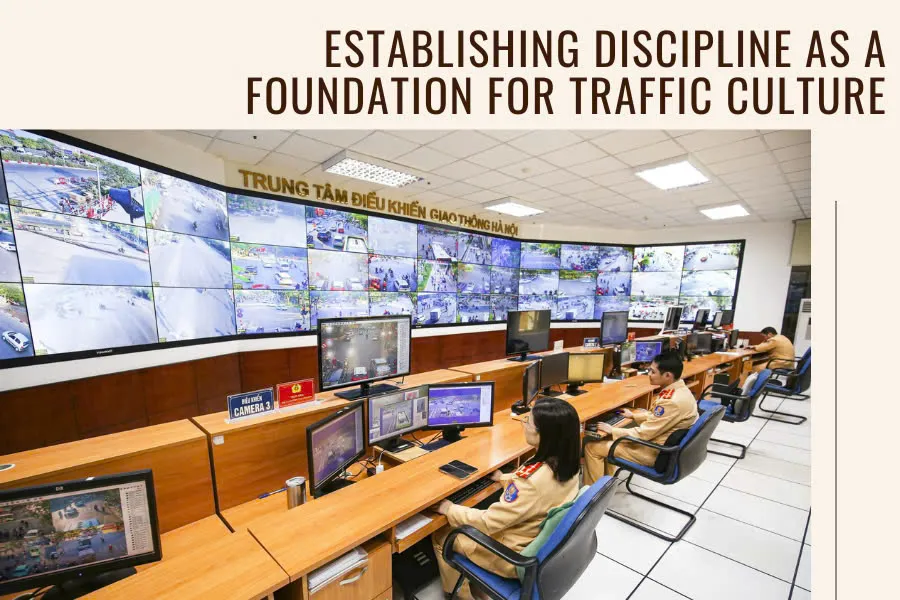Enforcing discipline as foundation for safe behavior on road
With road safety emerging as a critical urban priority, Hanoi is stepping up its efforts to build a safe driving culture based on discipline and public responsibility. Backed by stronger enforcement, updated legislation, and growing public awareness, the capital is seeing progress in improving order and reducing accidents.
THE HANOI TIMES — Lieutenant Colonel Nguyen Manh Tuan, Deputy Head of the Traffic Police Department under the Hanoi Police, spoke to The Hanoi Times about the city’s evolving traffic landscape and the way forward.

How has Hanoi’s traffic safety situation evolved in recent months?
We've seen significant improvements in traffic order and safety throughout the capital. Enforcement has been stepped up, particularly for crash-inducing behaviors such as drunk driving, speeding, and reckless lane violations.
Between January 1 and February 28, 2025, there were 184 road accidents in Hanoi, resulting in 109 deaths and 127 injuries, down 28.13%, 19.85%, and 33.51% year-on-year, respectively.
The results were attributed to greater coordination among traffic police, local authorities, and other relevant agencies, which has had a significant impact on public compliance and awareness.
How have recent measures impacted driver behavior and public awareness?
The Law on Road Traffic Order and Safety and Decree No. 168/2024/ND-CP have had a noticeable impact on behavior. Stricter penalties for intentional violations, including running red lights, driving in the wrong direction, and driving under the influence of alcohol or drugs, have led to greater compliance.
Equally important are new, more citizen-friendly measures, such as the point-based driving license system and temporary suspensions managed through digital platforms. These reforms act as both deterrents and convenient enforcement mechanisms.
We're starting to see results with changing public attitudes, better compliance with traffic laws, and a more responsible culture of road use.
Despite improvements, what challenges remain?
There remain significant challenges, including disobedience to road rules and risky driving behaviors like overspeeding and jumping signals.
Since March 1, following the streamlining of administrative units, traffic police have been the sole force responsible for managing traffic safety in Hanoi. This is a significant change that requires each officer to adapt and take on more responsibility.
Another pressing issue is the rapid rise in private vehicles, which continues to outpace infrastructure development. Although public education campaigns have expanded, there's still a need to diversify communication approaches to engage with the public.
What are your department’s plans to further reduce accidents and congestion?
We're committed to implementing the Party Central Secretariat's Directive No. 23, along with instructions from the prime minister and the Ministry of Public Security. Our focus is not only on enforcement but also on education by working closely with the media to raise public awareness of the new laws and penalties.
With the abolition of district-level police, we're adjusting the deployment of traffic officers and stepping up prevention efforts. Successful programs such as the Safe School Gate model will be expanded.
For 2025, we've developed a detailed action plan targeting six major categories of violations: drunk driving and drug abuse; illegal vehicle modifications and unsafe loading practices; speeding, red-light running, and reckless driving; driving in convoys, illegal racing, and public disturbances; phone use while driving; and underage driving.
Beyond enforcement, our goal is to foster a culture of civility on the road. This means instilling discipline in both road users and officers, encouraging respectful behaviors, and promoting a shared sense of safety and responsibility.
Ultimately, we want to reduce accidents, protect public health and property, and reduce congestion, moving toward a traffic culture that is lawful, humane, and sustainable.
Thank you for your time!












